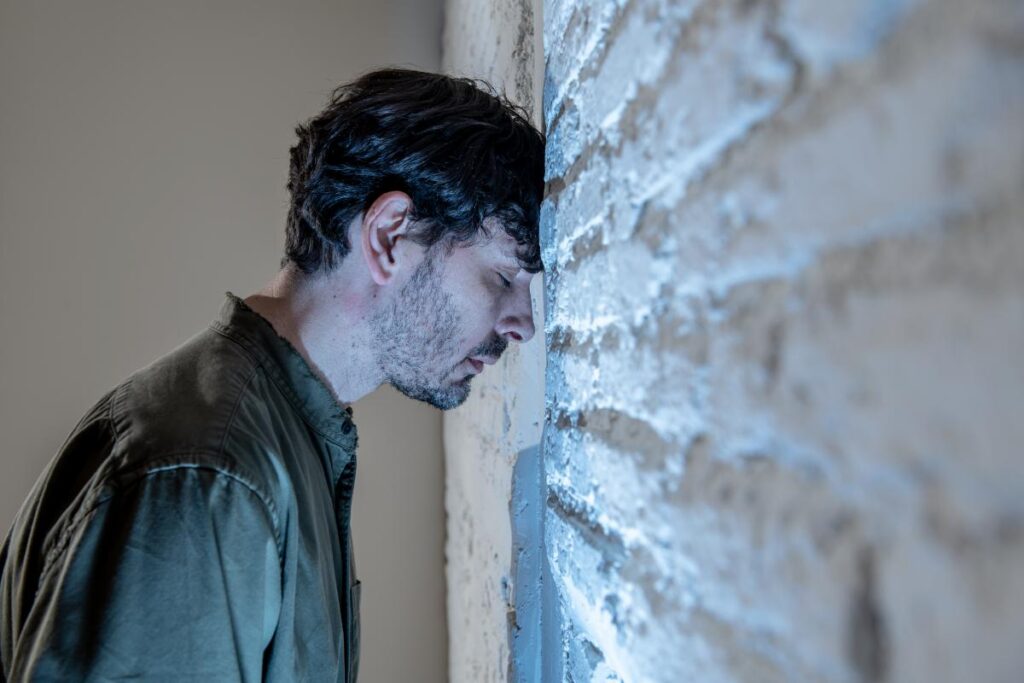Men face different issues than women when seeking recovery from drug or alcohol addiction. This is, in part, because of the way men are socialized in Western culture. There are biological reasons that also play a role in why men make the choices that they do. It’s important to acknowledge that men and women are placed in societal roles, and, as a result, gender plays an important role in rehab and recovery. This is why Red Oak Recovery® offers gender-specific rehab programs.
Red Oak Recovery® has designed our men’s addiction treatment center to meet the needs of men in recovery. To learn more about men’s issues in recovery, reach out to the experts at Red Oak Recovery® today at 866.457.7590 to speak with a trained representative about our programs and services.
8 Men’s Issues in Addiction Recovery
There are a number of issues that men face during addiction recovery. Here are eight of the most common.
1. Asking for Help Can Feel like Admitting Weakness
There’s a common joke about men refusing to ask for directions. This stops being funny in a situation where the direction is precisely what you need. At Red Oak Recovery®, we know it’s difficult to admit you have a problem and even more difficult to reach out for professional help because you realize that you can’t do everything alone. It’s important to step back and give yourself credit for the boldness it takes to admit your situation and reach out for help. This is essential to making significant life changes and being prepared to break the cycle of abuse and embrace lasting sobriety.
2. Men Are Less Likely to Question Their Behaviors and Choices
Too often, men prefer to be right, no matter the consequences. This desire has enormous implications when it comes to issues of addiction and recovery. Being right or wrong doesn’t matter when your life is on the line. What matters is that a person learns to accept they need help and that they cannot do everyone on their own.
Signs an addiction has progressed from mild to moderate or severe can include:
- You have tried to cut back or cease use and been unable to do so
- You have increased your use
- You’re hiding your use from others
- You are lying about the amount of a substance you use
- You are increasingly isolated or avoiding social situations
- You’re having relationship or family issues
- You are ignoring personal responsibilities to family, childcare, or work
Connecting with like-minded other men can help remove the stigma surrounding asking for help on your path toward lasting recovery and help you stay sober.
3. Men Struggle with Change
Change is hard for everyone. Men, in particular, tend to get fixed in their ways, so they struggle to take advice or admit that they might be wrong or have made a poor decision. Once a habit is formed, men are likely to find all sorts of reasons why it isn’t a problem. Part of this is a reluctance to admit to being wrong. We all make mistakes. It’s not a sign of weakness or a lack of moral conviction that causes people to turn to drugs or alcohol for relief.
4. Men Are Not Taught to Be Self-Aware
Men often have not learned to develop self-awareness and effective coping mechanisms. This can lead to poor decision-making, such as turning to drugs when times are tough, and answers don’t come quickly. In a treatment program, men can work with a counselor to address core issues that led to turning to drugs or alcohol for relief.
Men may surprise themselves by uncovering ideas about their identity and who they are. A greater understanding of their identity can be life-affirming and help a person develop positive, healthy, and meaningful lifestyle choices in sobriety.
5. Men Tend to Be Less Social
Isolation is a huge problem when it comes to drug abuse and relapse. Having a reliable social safety net is essential when it comes to relapse prevention. 12-step groups, anonymous groups, and sober sponsors are terrific resources that can help men get out of their own way. They’ll also learn that they can develop connections and relationships with other men that are safe and help them on their recovery journey.
6. Men Have a Higher Rate of Relapse
Men struggle to remain sober. There are many reasons why this is the case. Continuing mental health counseling after rehab can keep themselves accountable and stay on the path toward lasting recovery.
7. Connection Is Essential for Recovery
Making new connections can be a challenge for adults. Sometimes men lean on substances as a way of filling a void in their life due to a lack of connection with others. Aftercare and relapse prevention programs can help provide sober and supportive social connections
8. Men May Have a Co-Occurring Disorder
Men are more likely to struggle with mental illness that correlates with substance abuse. Common mental health conditions, including anxiety and depression, can contribute to the temptation to use substances to cope. Unfortunately, over time, drug abuse makes mental illness worse. Once a person has developed a full-blown addiction, they will inevitably have to deal with the negative consequences of their choices. Proper management of dual diagnoses and co-occurring disorders related to substance abuse and mental health are essential for achieving lasting recovery and avoiding relapse.
Reach Out to Red Oak Recovery® Today
The benefits of a gender-specific rehab cannot be overstated. For some, this can mean the difference between lasting sobriety and continuing a life of poor decision-making, addiction, and risk of relapse. Our men’s rehab center can help men focus on themselves without distraction. It can also provide a space to feel safe opening up about emotions and life circumstances that are difficult to face, let alone discuss with others in a public setting. To learn more about our services, please contact Red Oak Recovery® today at 866.457.7590.









